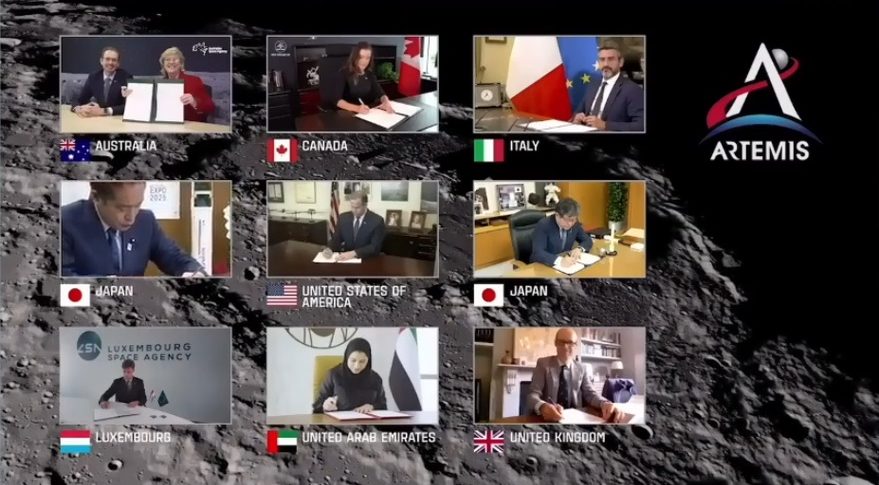On Friday, February 25th, 2022 the brand-new Duke Space Diplomacy Lab (SDL) had an exciting launch with its first panel event: hosting journalists Ramin Skibba, Loren Grush, and Jeff Foust for a conversation on challenges in space within the next year. Moderated by Benjamin L. Schmitt of Harvard University, the conversation was in line with the SDL’s goals to convene a multidisciplinary group of individuals for the development of research, policy proposals, and solutions to mitigate risks in space.

In conversation, three key themes arose:
- U.S Russia Relations
With the current Russian invasion in Ukraine and the subsequent strain on U.S-Russia relations, the geopolitics of space has been in the limelight. Control of outer space has been a contentious issue for the two countries since the Cold War, out of which an uneasy yet necessary alliance was forged. Faust remarked that he doesn’t see U.S-Russia space relations lasting beyond the end of the International Space Station (ISS) in 2030. Grush added that before then, it will be interesting to see whether U.S-Russia relations will sour in the realm of space, simply because it’s questionable whether the ISS could continue without Russian support. However, Russia and NASA have historically acted symbiotically when it comes to space, and it’s unlikely that either party can afford to break ties.
2. Space debris
Major global players, from the U.S to China to India to Russia, are all guilty of generating space debris. Tons of dead satellites and bits of spacecraft equipment litter the areas around Earth – including an estimated 34,000 pieces of space junk bigger than 10 centimeters – and if this debris hit something, it could be disastrous. Grush paints the picture well by comparing spacecrafts to a car on a road – except we just trust that the satellite will maneuver out of the way in the event of a collision, autonomously, and there are absolutely no rules of the road to regulate movement for any other vehicles.

Skibba suggests that the best thing to do might be to make sure that more stuff doesn’t enter space, since the invention of technologies to clean up existing space debris will take a while. He also points to efforts to program new spacecrafts with graveyard orbit and deorbit capabilities as a necessary step.
3. Who is in charge of space?
Faust explained that commercial space exploration is moving incredibly fast, and legal regulations are struggling to keep up. Tons of companies are planning to launch mega-constellations in the next few years, for reasons that include things like providing higher-speed Internet access – something that we can all benefit from. Yet with new players in space comes the question of: who is in charge of space? The Artemis Accords are the existing rules that govern space at an international level, but they function as an agreement, not law, and with more players in space comes a need for legally binding terms of conduct. But as Grush puts it, “there’s a tension between the nimble, rapid commercial environment and a regulatory environment that wasn’t quite prepared to respond.”

Beyond who rules over space, there’s also the question of decolonizing space. Skibba brings up that amidst a growing number of mega-constellations of satellites being launched, there are key questions being asked about who has access to space, and how we can level the playing field for more countries and companies to enter space exploration.
Space is uncharted territory, and to understand it is no small feat. While science has come incredibly far in terms of technological capabilities in space, it’s clear that we don’t know what we don’t know. But with a more multilateral, global approach to exploring space, we may just be able to go even farther.

Post by Meghna Datta, Class of 2023
